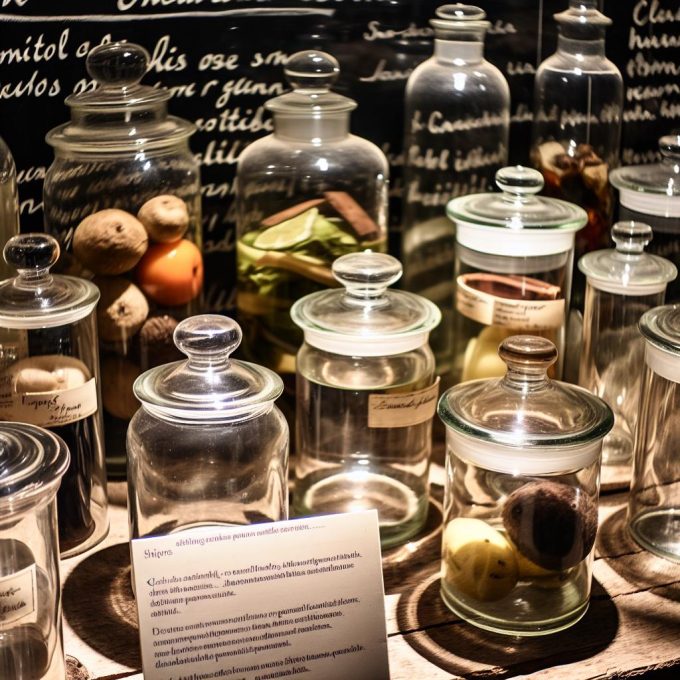The Importance of Glass Containers in Preserving Quality
In the realm of product packaging and preservation, particularly within the food and beverage sector, glass containers have established their prominence due to several intrinsic qualities. Known for its non-reactive nature, glass serves as a protective shell that preserves the quality, taste, and aroma of diverse products. This attribute is fundamental in safeguarding the integrity of the products it encases, thus making glass a material of choice among manufacturers.
Benefits of Using Glass Containers
Non-Porous and Impermeable
One of the most distinctive properties of glass is its non-porous and impermeable nature. These characteristics imply that glass does not absorb or transmit any external elements, such as flavors, odors, or colors, from the surrounding environment. As a result, the product enclosed retains its original quality, staying as fresh as intended. Unlike materials such as certain plastics, glass acts as a barrier against gases and water vapor, thus providing an added layer of protection against environmental pollutants and contaminants.
Resistance to Chemical Interaction
A further benefit of using glass is its resistance to chemical interaction. This quality ensures that the contents within are not influenced by any chemical reactions with the container itself. This is particularly crucial for products where taste integrity is paramount, such as wines, spirits, and other artisanal goods like olive oils. The preservation of natural flavors and aromas is a critical aspect of product quality, and glass allows these characteristics to remain undisturbed.
Transparency and Product Appeal
The transparency of glass adds another layer of appeal, offering consumers a visual check of their products without having to open the package. This feature is particularly advantageous for showcasing products that rely on visual appeal as a part of their marketing strategy, such as fruit preserves, high-end beverages, and gourmet foods. The clarity of glass not only highlights the product’s natural beauty but also instills confidence in consumers about the purity and quality of the product within.
Environmental Impact
Beyond preserving quality, glass is renowned for its environmental benefits. In an era where sustainability is at the forefront of global discourse, glass emerges as a superior choice over many other packaging options, particularly plastic. Made from naturally abundant materials like sand, limestone, and soda ash, glass is 100% recyclable. When recycled, it retains its quality and can be reiterated into new containers indefinitely without deterioration of its material properties. This makes glass an exemplary model of the closed-loop recycling process, contributing positively to environmental conservation efforts.
The durability of glass also plays a role in its environmental advantages. Glass containers can be reused numerous times before recycling, thus reducing the overall consumption of raw materials and energy required for new production. This reusability aspect aligns with the growing consumer demand for sustainable products and packaging solutions.
Versatility in Design and Usage
In addition to the functional benefits, glass containers offer a significant level of versatility and aesthetics. Available in a myriad of shapes, sizes, and designs, glass can be tailored to meet diverse packaging needs. This adaptability makes it an attractive choice for product differentiation and brand positioning, particularly in premium market segments. The aesthetic appeal of glass, combined with its ability to preserve product quality, makes it a compelling option for brands aiming to deliver an upscale experience to consumers.
Furthermore, glass containers enhance the overall presentation of a product. The capacity to customize glass with various finishes and colors enables brands to align their packaging with their market identity and values. The luxurious feel of glass appeals to a demographic that associates image quality with product excellence.
Health Benefits and Consumer Safety
From a health perspective, glass is a preferred choice for those who are health-conscious. Unlike some plastic containers that contain harmful substances such as BPA (Bisphenol A), glass is free from synthetic chemicals, ensuring no potential leaching into the food or beverage. This safety aspect reinforces consumer trust in the quality and safety of the products they purchase.
Moreover, glass has excellent thermal insulation properties. It can be safely used in various temperature conditions, making it suitable for storing products that require refrigeration or heating. This versatility further broadens its application in both household and industrial settings.
Conclusion
To summarize, the use of glass containers in safeguarding product quality stems from their non-reactive, impermeable, and environmentally friendly nature. These inherent characteristics have solidified glass as a reliable choice for many manufacturers across the globe. By ensuring the preservation of natural qualities while offering sustainability and aesthetic versatility, glass containers continue to hold their ground as a packaging material of choice in the competitive landscape, appealing to both businesses and consumers alike. For more insights into materials used in the food industry, explore more resources on food safety and packaging.

